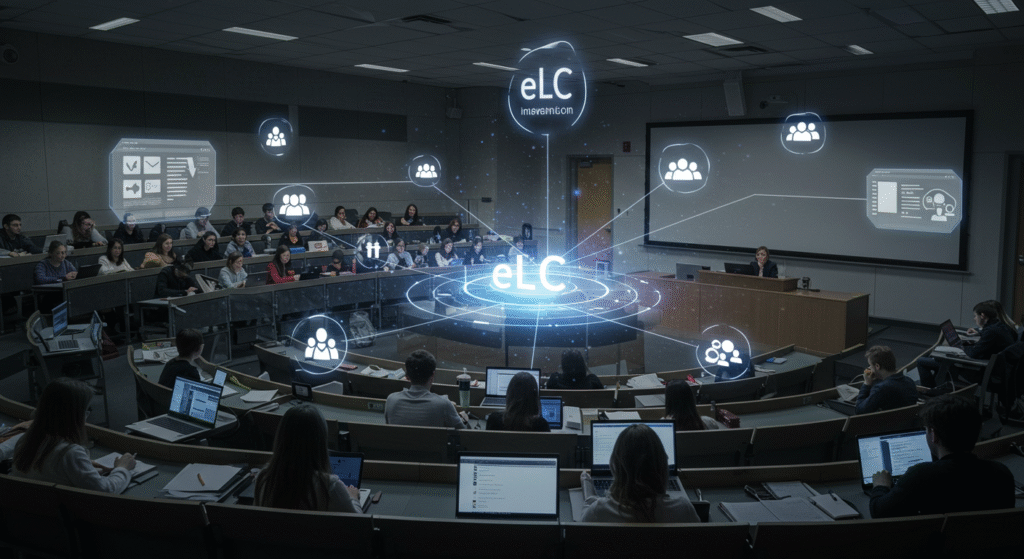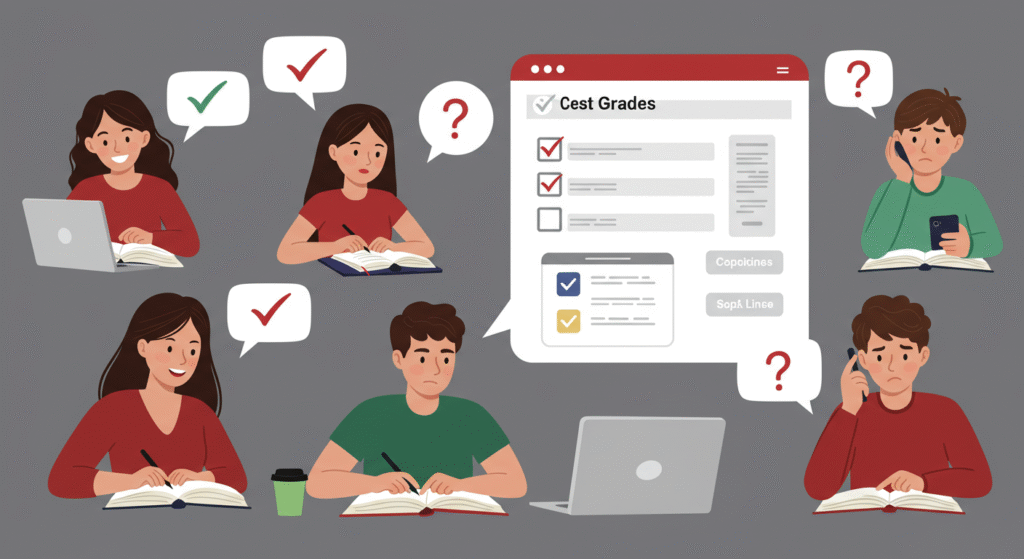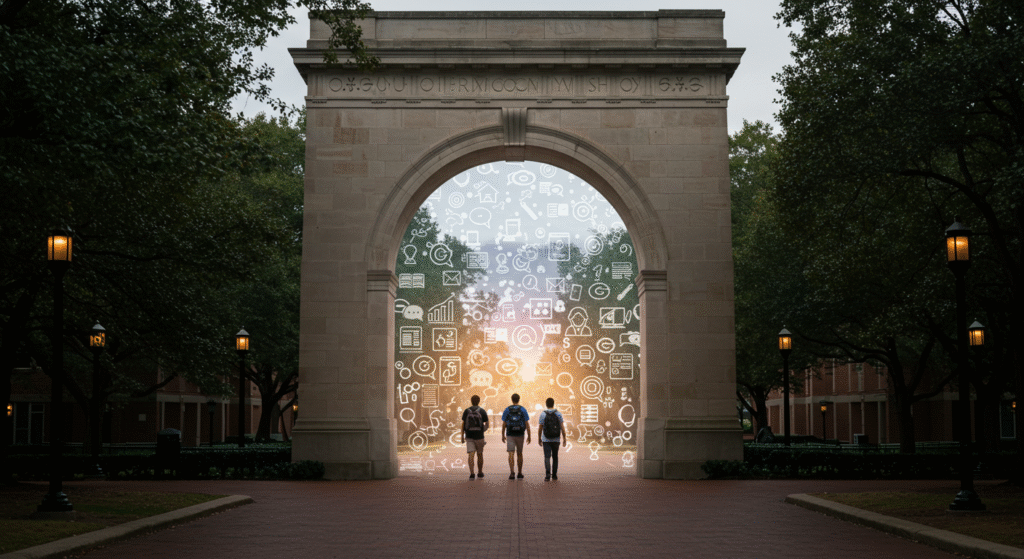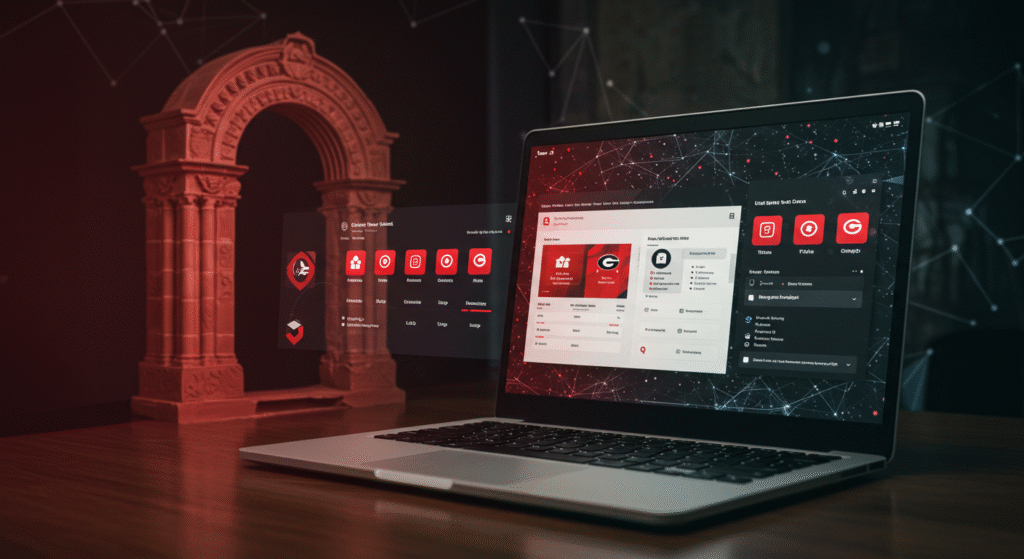The University of Georgia uses eLC as its main tool for online learning. eLC stands for eLearning Commons. It runs on a system called Brightspace from D2L. Students and teachers log in at elc.uga.edu. This site helps with classes. But this article does not teach how to log in or use it.
Instead, we look at the big picture. We ask why UGA has eLC. We see how it fits into school life. We check what makes it special at UGA. We hear from students and teachers. We compare it to tools at other schools. We think about why it helps students win. And we peek at what comes next. This matters because eLC shapes how people learn at UGA today.
UGA is a big public school in Athens, Georgia. It has over 40,000 students. Many take classes in person. But eLC ties everything together. It holds notes, grades, and talks. Without it, school would feel split. eLC makes learning smooth. It fits UGA’s goal to teach well in a changing world. As more classes go online or mix with in-person, tools like eLC grow key. They help students stay linked. They let teachers share fast. This article digs into that.
The Role of eLC at UGA

eLC does more than hold files. It helps teaching go beyond walls. Teachers post lessons. Students turn in work. All see grades right away. This keeps everyone on track. At UGA, eLC links big classes. Some have hundreds of students. It makes hard jobs easy.
UGA picked Brightspace in 2013. Before, they used other tools. But Brightspace fit best. It works with UGA’s tech. The University System of Georgia helps run it. This group covers many schools. They share costs and tips. Why not pick something else? UGA looked at needs. They wanted safe data. Easy use for all. And room to grow. Brightspace checks those boxes. It handles big loads. UGA has many users. The system stays up most times.
eLC boosts UGA’s way of teaching. UGA wants smart thinkers. eLC lets teachers add fun parts. Like group chats. Or quick tests. This builds skills for jobs. UGA focuses on research too. eLC shares lab notes. It links to tools for data. This ties class to real work. For example, in science classes, students upload findings. Teachers give fast notes. This loop helps learning stick.
But eLC is not perfect. It needs good net. Some spots on campus have weak signals. UGA works on that. They add Wi-Fi spots. They train teachers too. The Center for Teaching and Learning runs classes on eLC. This makes sure all use it well. Without training, some might skip parts. UGA’s culture values help. Teachers share ideas. This makes eLC stronger for all.
In short, eLC is UGA’s hub. It holds the school’s heart. It lets learning flow free. As UGA grows, eLC grows with it. It keeps the school strong in education.
Comparing UGA eLC to Other Universities’ Systems
Many schools use tools like eLC. Blackboard is old but common. Canvas is new and liked. Moodle is free and flexible. Each has pros. UGA’s eLC on Brightspace stands out in ways.
Blackboard is at some big schools. Like the University of Texas. It has strong grade books. But users say it’s clunky. Menus hide things. UGA’s Brightspace feels clean. Screens load fast. Tools sit where you expect. This saves time. In surveys, Brightspace scores high on ease. Blackboard often gets low marks there.
Canvas shines at places like Stanford. It looks modern. Mobile app works great. UGA’s app is good too. But Canvas lets more custom looks. Teachers change pages easy. Brightspace needs more steps. Yet UGA adds its own touch. They link to UGA mail and calendars. This fits school life better. Canvas might feel generic.
Moodle is open source. Schools like it for no cost. The University of Minnesota uses it. You change code as needed. But this takes tech skills. UGA likes Brightspace for support. D2L fixes bugs fast. Moodle users fix their own. For a big school like UGA, quick help matters. Downtime hurts thousands.
What makes UGA’s eLC unique? It’s tied to state systems. The University System of Georgia runs it for many campuses. This shares best ways. Tools work the same at UGA or Georgia State. Students move easy if they switch. Other schools might not have this net. UGA adds extras. Like links to library books. Or health tips. This wraps school life in one spot.
But comparisons show gaps. Some say Canvas grades faster. Blackboard tracks better. UGA listens. They update eLC often. Recent changes add AI hints. This keeps it fresh. In the end, no tool wins all. UGA’s setup fits its size and goals. It stands out for steady work and school ties.
Student Perspectives on eLC

Students see eLC every day. It holds their world. Many like how it sorts things. Notes in one spot. Due dates clear. Grades show up fast. This cuts stress. One student said it helps plan time. No more lost papers. All lives online.
Access matters too. Students check from phones. The app lets that. But some classes use it more. In big lectures, eLC shines. Teachers post slides before class. Students follow along. In small groups, it adds chats. This builds bonds.
Yet challenges come. Navigation can trick new users. Menus nest deep. Some hunt for files. Login needs two steps. This keeps safe but slows. If net lags, frustration grows. Reddit threads show this. Students ask why classes hide. Or why pages load slow. Answers point to teacher setup. Classes show when ready. Often a day before start.
Feedback varies. Some say it’s hard at first. Every teacher sets up different. No one way. This confuses. “I hate it. It is confusing,” one post said. But with time, most adapt. Advantages win. Like quick quiz scores. Or group work tools. Surveys show mixed views. Many rate it okay. Few love or hate. UGA asks for input. They fix based on that.
Security worries some. Does eLC track views? Yes, for tests. It logs access. This stops cheats. But students wonder how much. “What does ELC know?” a thread asked. It sees when you open files. Teachers use this for grades sometimes. This pushes honest work.
Overall, students see eLC as needed. It helps more than hurts. As they learn it, value grows. UGA works to make it better. This keeps views up.
Faculty Perspectives on eLC
Teachers shape eLC use. They build courses there. For grading, it’s key. Enter scores once. Students see right away. No paper stacks. In big UGA classes, this saves hours. Teachers focus on teaching, not admin.
Announcements reach all fast. Post once, all get. This cuts email mess. For quizzes, eLC auto-grades some. True or false? It checks. Short answer? Teachers review. This mixes auto and hand work. Hybrid classes love it. Mix online and in-room. eLC holds videos for absent students. Or polls for all.
Managing large groups is easy. UGA has classes over 300. eLC groups them small. For talks or projects. Teachers track who does what. This builds fair grades. Online learning grows at UGA. eLC supports full web classes. Tools for live chat. Or recorded talks. This reaches far students.
But hurdles exist. Setup takes time. New teachers learn curves. “Every professor does something different,” students note. This comes from no strict rules. Freedom helps but confuses. Tech glitches happen. Pages slow during peaks. UGA trains to help. Workshops teach tips.
For hybrid, eLC bridges gaps. Post notes for all. This keeps pace even. Teachers say it boosts talk. Students ask online. Answers help class. This ties community.
In sum, faculty value eLC for flow. It cuts busy work. Lets deep teaching. As UGA pushes online, eLC stands central.
Why UGA eLC Matters for Academic Success

eLC builds steady classes. Rules stay same across. One class uses forums. Next does too. This trains habits. Students know what to expect. No big shifts.
It’s a talk hub. Teachers post news. Students ask help. All in one spot. No lost emails. This keeps info clear. Fast fixes for issues. Students stay on top.
eLC preps for jobs. Work uses tools like this. Share files. Team online. Track tasks. UGA grads know how. This gives edge. In digital world, skills matter.
Consistency helps weak spots. Some students lag. eLC shows early. Low quiz? Teacher sees. Offers help soon. This lifts success rates.
Central spot cuts chaos. All resources here. No hunt across sites. Time saved for study. This boosts grades.
For big school like UGA, eLC scales. Handles thousands. Keeps personal feel. Groups small chats. This makes large small.
But it needs all to use well. If teachers skip, value drops. UGA pushes full use. This maxes help.
In end, eLC drives wins. Ties learning tight. Preps real life. Keeps school strong.
The Future of eLC at UGA
Learning tools change fast. Mobile first leads. People use phones more. eLC app grows key. Updates add easy swipes. Quick loads.
AI comes next. Smart hints for students. “Try this quiz.” Or auto tips on weak spots. Teachers get data. Who needs help? This personalizes.
Trends show hybrid rise. More mix classes. eLC adds VR meets. Or AR views. For science, see models in 3D.
UGA plans upgrades. Brightspace gets new versions. Recent to 20.25.8. Fixes bugs. Adds tools. Like LinkedIn links for jobs.
State group pushes more. USG deal with D2L lasts. Adds storage rules. Keeps data safe.
eLC might add health ties. Track wellness with learning. Or green tips. Fits UGA’s wide goals.
But changes need care. Train all. Keep easy. UGA tests new parts. Gets feedback.
Future eLC evolves with teaching. New ways like game learning. Or peer grades. This keeps UGA ahead.
Conclusion
UGA eLC is more than a site. It’s core to school mission. Holds teaching together. Fits UGA’s big goals. Helps students and teachers thrive.
Think of it as key tool. Not just login. Use full to win. As world shifts digital, eLC guides UGA forward.
Disclaimer: This article is written for learning and information only. It is not official advice from the University of Georgia. All details are based on public information and general knowledge. For the most correct and updated facts, please visit the official UGA websites. The views here are my own and not connected to UGA.
